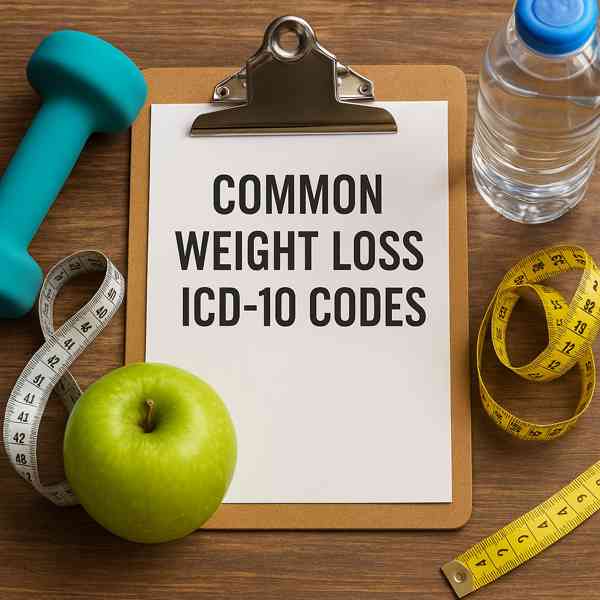
Whether you’re a medical professional, billing specialist, or patient navigating claims, understanding weight loss ICD-10 codes is key.
In this article, we’ll break down what ICD-10 codes are used for weight loss, how to apply them, and what you should know for accurate recordkeeping.
ICD-10 Basics Explained
ICD-10 stands for the International Classification of Diseases, 10th Revision.
Each diagnosis is assigned a unique code, which is used for:
- Insurance billing and reimbursement
- Tracking public health trends
- Communicating diagnoses between professionals
Top Codes Used for Documenting Weight Loss
Weight loss can be intentional or unintentional — and each situation has a specific ICD-10 code.
Key codes include:
- R63.4 – Abnormal Weight Loss
This code applies when a patient loses a significant amount of weight without trying, often due to illness.
- Z71.3 – Dietary Counseling and Surveillance
Often applied in cases involving nutritional intervention or guidance.
- Indicates poor nutrition or unhealthy patterns impacting weight
- E66.9 – Obesity, Unspecified
- E43 – Unspecified Severe Protein-Calorie Malnutrition
Documenting Unexplained Weight Loss Properly
R63.4 is the most commonly used ICD-10 code for weight loss, but it must be applied correctly.
- There is no intentional diet or fitness program involved
- A known condition doesn’t fully explain the weight change
- Used as part of diagnostic workup
Tips for Correct ICD-10 Weight Loss Usage
To avoid claim denials or coding errors:
- Always specify if weight loss is intentional or not
- Include context like depression, cancer, or malabsorption
- Use supplemental Z-codes for counseling or screenings
- Avoid using obesity and weight loss codes together unless clinically justified
ICD-10 for Weight Management Programs
If you’re coding for a structured weight loss program or health coaching, consider using these Z-codes:
- For nutrition-based support
- Z76.89 – Person Encountering Health Services for Other Reasons
- Used in early evaluation settings
These codes can support insurance claims icd-10 code for weight management for wellness, prevention, and obesity treatment plans.
Use ICD-10 Effectively in Clinical Settings
Using the right ICD-10 code for weight loss is non-negotiable for clear documentation and proper billing.
To summarize:
- R63.4 = Unintentional weight loss
- Great for structured programs
- E-codes = Nutritional or medical malnutrition
When in doubt, document fully and consult with a certified coding professional.
Comments on “Accurate ICD-10 Coding for Weight Loss”